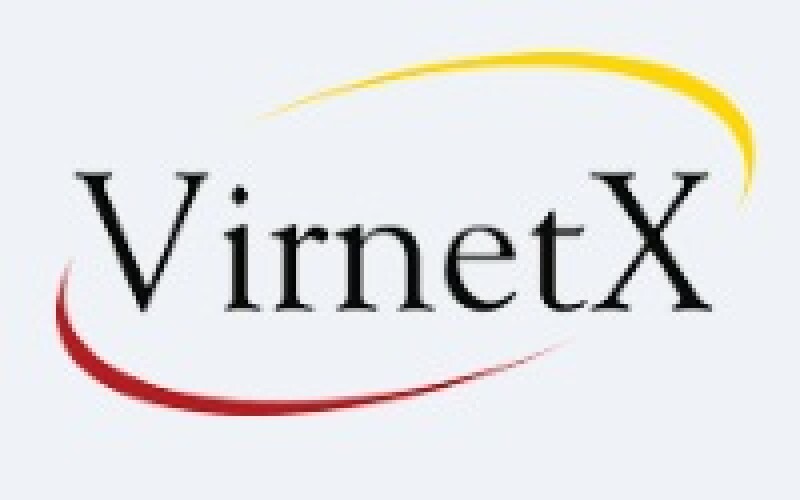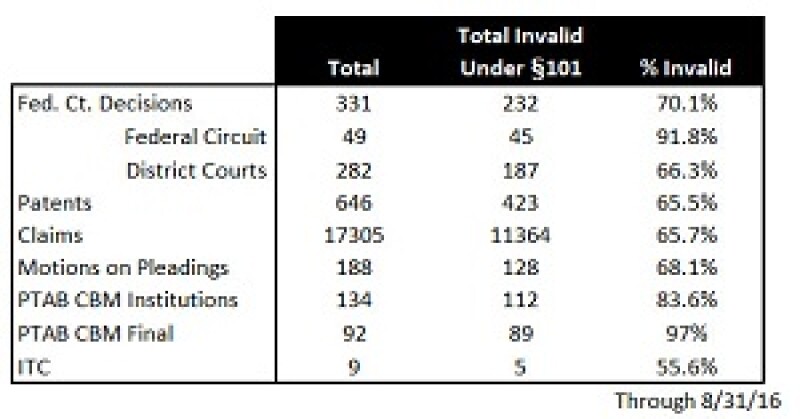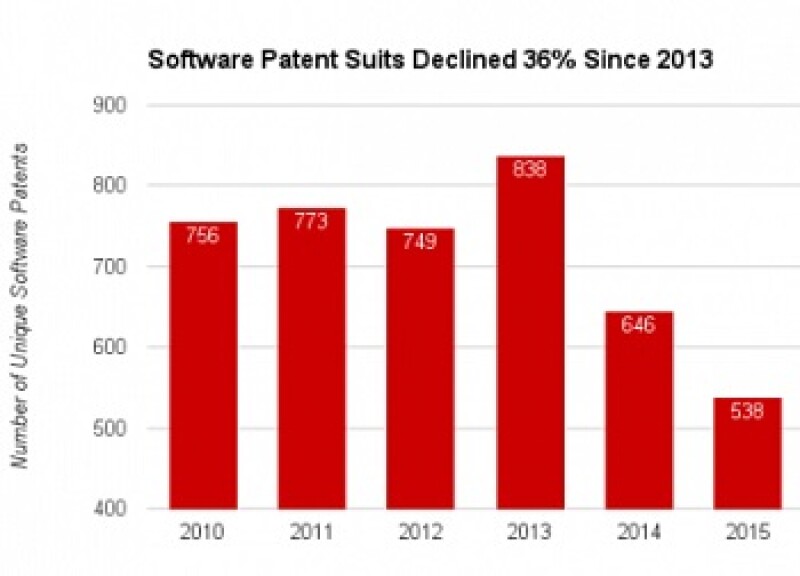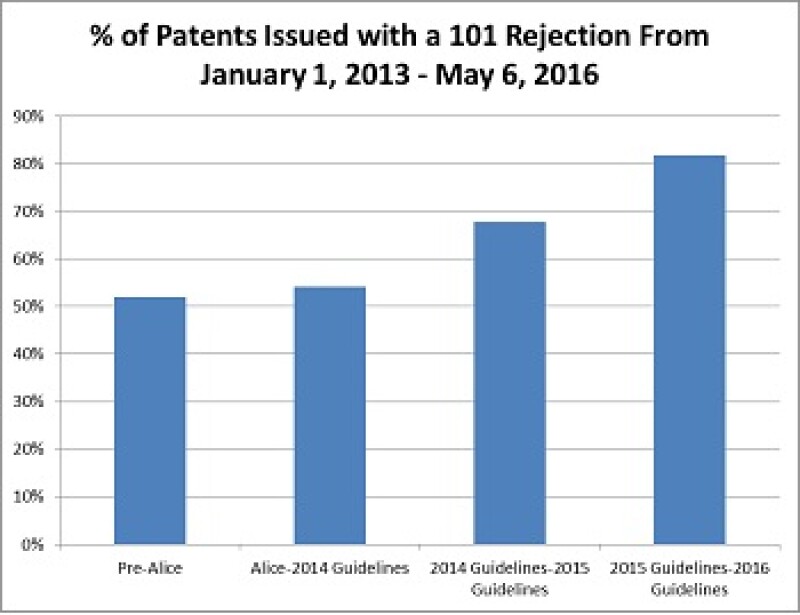Also on the blog in the past week were:
Managing IP webinars coming up soon
US patent litigation update: filing falls in August
Guest post: Improving patent analysis with big data
Slowly, a post-Brexit picture will emerge
We’ve also posted the following articles in the past week (log in via subscription or free trial):
Lee defends USPTO against accusations of examiners billing unworked hours
Federal Circuit rules software patents valid in McRO v Bandai Namco
Euromoney Legal Media Group Asia Women in Business Law Awards 2016: Shortlist announced
European Patent Reform Forums in Munich and Paris – the highlights
How to avoid the FTC not “liking” your next campaign
PTAB 4 Years In: Hedge funds and reverse patent trolls
PTAB 4 Years In: Don’t Estop Me Now
Revealed: Filing trends at the UK IPO post-Brexit
GS Media decision gives ammunition to copyright owners
General Court upholds Lundbeck pay-for-delay fine
PTAB filing falls in August but higher than 2016 average
EPO President Battistelli on appeals reforms
IP Stars 2017 research now underway
Bad PTAB news for VirnetX, Teva

VirnetX’s stock price fell almost 14% last Friday after the Patent Trial and Appeal Board invalidated four of its patents, reports Bloomberg.
Two of the inter partes review petitions were filed by Apple and two by Mangrove Partners.
Bloomberg quoted VirnetX CEO Kendell Larsen as saying: “If you’re trying this, and trying to put this out to the shorts and hurt VirnetX stock, this is what you do. The Federal Circuit is going to make the final determination.”
The final written decisions came out less than two weeks before a trial with Apple in the Eastern District of Texas begins. At the end of July, Judge Robert Schroeder issued a new order in the VirnetX's pending litigation in two cases against Apple, vacating a previous order consolidating the two cases and ordering the parties to retry them as separate cases. Jury selection is scheduled for September 26.
Pharmaceutical company Teva also received bad news from the PTAB. The Board invalidated three patents covering methods for administering multiple sclerosis drug Copaxone, according to Marshall Gerstein’s PTABWatch blog.
Mylan filed IPRs challenging the claims of each of the Teva patents as anticipated by or obvious over certain prior art.
While Teva will likely appeal these IPR decisions, Mylan still has a chance at striking down a fourth related patent in a pending district court action, thus paving the way for generic entry into the Copaxone market,” noted Marshall Gerstein.
No shelter from summer Alice storm

The trends of invalidation rates since the Supreme Court’s Alice decision two years ago “have continued and become more entrenched” in July and August, according to BilskiBlog. Robert Sachs, Fenwick & West partner, refers to this as AliceStorm.
June, July and August had an increase in Section 101 decisions from April and May, the majority of which were motions to dismiss and judgments on the pleadings. The rates of invalidity holdings continue to be steady, with 70% overall and 66.3% in district courts.
Sachs has recently started tracking ITC proceedings as well.
“As I've argued, the Supreme Court did not intend AliceStorm and specifically did not intend the impact on software patents. Yet the onslaught continues,” said Sachs.
Patent practitioners will hope that yesterday’s McRO v Bandai Namco decision, only the fourth time the Federal Circuit has ruled a software patent valid on 101 grounds since Alice, is a signal of better times to come.
Software patent litigation plummets
Software patent lawsuits have declined by 36% since 2013, according to a blog post from Patexia.

“We looked at different types of software patents based on U.S. patent classification codes and discovered the decline was not equal across all software classification codes,” noted Patexia CEO Pedram Sameni.
The top two classes, 705 and 707, had declined 40% and 50% from 2013 to 2015, respectively. Patents in class 705 are generally referred to as business method patents.
Alice prosecution rejections hit the floor
In further software patent news, Knobbe Martens released an analysis of how the USPTO guidelines released in response to Alice have affected patent prosecution.

“Our analysis of recent data, however, may indicate that the steep drop off in patent issuances due to Alice has at least hit its floor and started an upward trend,” said the law firm.
Knobbe examined the data for patents in various art units of tech centre 3600 that issued between January 1 2013 and May 6 2016 and that had overcome a rejection under Section 101.
The law firm concluded: “Although there has been both a sharp increase in patent eligibility rejections and a sharp decrease in issued patents for software and business method-related inventions since Alice, patent applicants are still having some success in obtaining patents in these technology areas. Further, since the 2015 Guidelines, the average number of patents issuing per month in these technology areas that have successfully overcome a 101 Rejection has increased.”
A blockchain technology patent war?
The IP CloseUp blog ran an interesting post asking whether blockchain technology will fuel a new patent war or prevent one.
Blockchain is a shared database of transactions and other information, which is open to all and controlled by no one. It also can function as an autonomous semi-private network.
Bruce Berman on the IP CloseUp blog said that competition is building for patents that go beyond bitcoin and cover inventions that support a distributed public ledger. “The race among a variety of disparate players is not likely to be a repeat of the smartphone wars, but it does have the potential to create an IP licensing windfall for early movers,” he said.
Berman added: “The promise of blockchain to streamline important, voluminous tasks is uniquely important to IP holders. It could provide an opportunity to copyright and other IP dependent businesses and individuals (patent holders, too) to track and receive incremental payments that in the past were difficult to comprehend; blockchain could serve to minimise disputes in ways that the courts and PTAB have not.”
He added there is a strong feeling that the distributed public ledger technology could be a catalyst for new ways of doing business, and that IP rights will play a role.









